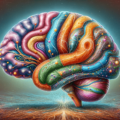Reflective self-assessment is a critical tool in the Harm Reduction concept, addiction monitoring, and recovery. It involves a process of introspection, where people evaluate and analyze their thoughts, feelings, behaviors, and patterns related to substance use. This continuous and dynamic process aids in recognizing triggers, understanding the underlying causes of addiction, and fostering self-awareness and control.
Understanding Addiction
As we said, addiction is a complex, multifaceted condition, often characterized by the compulsive use of substances despite harmful consequences. It involves a combination of genetic, environmental, and psychological factors. Addiction alters the brain’s structure and function, leading to changes in behavior, perception, and physiological responses.
The neurobiology of addiction highlights the changes in the brain’s reward system. Substances like opioids, alcohol, and amphetamines stimulate the release of neurotransmitters such as dopamine, creating a sense of pleasure or euphoria. Repeated substance use can lead to alterations in this reward pathway, making substance use a priority over other life activities.
Key Components of Reflective Self-Assessment

- Trigger Identification: One of the most crucial aspects is recognizing the specific situations, emotional states, or environmental factors that precipitate substance use. This awareness is the first step in developing coping mechanisms to deal with these triggers effectively.
- Behavioral Patterns Analysis: Addiction is often sustained by habitual behaviors and routines. Through reflective self-assessment, individuals can dissect these patterns, understanding what leads to substance use and why. It’s about breaking down the cycle of addiction into manageable parts that can be addressed.
- Emotional Intelligence: Many people turn to substances as a way to cope with negative emotions or to enhance positive ones. Reflective self-assessment helps in understanding these emotional triggers and developing healthier emotional regulation strategies.
- Cognitive Reflection: This involves examining one’s thoughts and beliefs about substance use. It’s crucial to challenge any cognitive distortions or rationalizations that may perpetuate addiction.
- Self-Responsibility and Empowerment: Reflective self-assessment fosters a sense of personal responsibility. Recognizing that one has the power to change their behavior is empowering and essential for lasting recovery.
Reflective Self-Assessment Techniques

Reflective self-assessment in addiction monitoring is a vital component for individuals seeking to understand and manage their substance use. This process helps in identifying triggers, understanding emotional responses, and developing strategies for long-term recovery. Here are some effective methods:
1. Journaling
- Description: Journaling involves writing down thoughts, feelings, and experiences related to substance use. It can be free-form or structured, with prompts to guide reflection.
- Benefits: This method helps in tracking patterns of behavior and thought, emotional triggers, and the effectiveness of coping strategies over time. It provides a tangible record for reflection and can be a therapeutic outlet for emotions.
- How to Implement: Individuals can write daily or after significant events. Prompts might include questions like “What led to the desire to use substances today?” or “How did I cope with cravings?”
2. Mindfulness and Meditation
- Description: Mindfulness is the practice of being present and fully engaged with the current moment. Meditation often accompanies this practice, involving techniques to focus and calm the mind.
- Benefits: These practices increase awareness of thoughts and feelings, reduce stress, and improve emotional regulation. They can also help in recognizing the onset of cravings and developing non-reactive responses to them.
- How to Implement: Daily practice, even for a few minutes, can be beneficial. Guided meditation apps or classes specifically designed for addiction recovery can be particularly helpful.
3. Self-Questionnaires and Checklists
- Description: Structured self-assessment tools like questionnaires and checklists can help individuals systematically evaluate their substance use and its impact.
- Benefits: These tools provide a structured way to assess factors like frequency of use, cravings, emotional state, and life areas affected by addiction.
- How to Implement: Regularly complete self-assessment forms, either developed independently or provided by a healthcare professional.
4. Therapeutic Techniques
- Description: Techniques derived from cognitive-behavioral therapy (CBT) and motivational interviewing can be adapted for self-assessment. These include identifying distorted thinking patterns and exploring ambivalence about change.
- Benefits: These methods can uncover underlying beliefs and attitudes driving substance use, fostering a deeper understanding and motivation for change.
- How to Implement: Engage in reflective exercises like identifying automatic thoughts associated with substance use or listing the pros and cons of quitting.
5. Digital Tools and Apps
- Description: Various apps and online platforms offer features for tracking substance use, mood, triggers, and coping strategies. I think making a list of such apps and services is a great idea for another post for Mindheal.
- Benefits: Digital tools provide an easy and accessible way to monitor patterns over time and can offer reminders and motivational support.
- How to Implement: Choose an app designed for addiction monitoring and engage with it regularly to track your journey.
6. Feedback from Others
- Description: Seeking feedback from trusted individuals, therapists, or support groups can provide external perspectives on one’s behavior and progress.
- Benefits: This method can offer insights that might be overlooked when self-assessing and provide additional support and accountability.
- How to Implement: Regularly discuss reflections and progress with a therapist or share in support group meetings.
7. Art and Creative Expression
- Description: Engaging in creative activities like drawing, painting, or writing poetry can be a form of reflective self-assessment.
- Benefits: Creative expression can uncover subconscious thoughts and emotions, offering a different avenue to explore the impact of addiction.
- How to Implement: Set aside time for creative activities, focusing on themes related to addiction and recovery.
Challenges and Considerations in Reflective Self-Assessment

Self-assessment is a valuable tool, but it’s not without its challenges. Being aware of these hurdles and considering certain factors can enhance the effectiveness of this self-reflective process.
Challenges
- Emotional Difficulty: Reflecting on one’s addiction can bring up painful emotions and memories. Facing the reality of one’s substance use, its consequences, and underlying issues like trauma or mental health disorders can be emotionally taxing.
- Self-Deception and Denial: A common challenge in addiction is denial or self-deception. Individuals may minimize their substance use, rationalize their behavior, or fail to recognize the severity of their situation, hindering effective self-assessment.
- Lack of Insight: Some individuals may lack self-awareness or insight into their own thoughts and behaviors, making it difficult to accurately assess their addiction and its triggers.
- Fluctuating Motivation: Motivation in addiction recovery can fluctuate. There may be times of strong commitment to recovery and other times of ambivalence, which can affect the consistency and honesty of self-assessment.
- Cognitive Impairments: Substance use can lead to cognitive impairments, affecting memory, attention, and executive functioning. This can interfere with the ability to engage effectively in self-reflection.
Considerations
- Professional Guidance: It’s important to complement self-assessment with professional guidance. Therapists and addiction specialists can provide the necessary support, tools, and perspectives needed for a more comprehensive understanding of one’s addiction.
- Balancing Honesty and Compassion: While honesty is crucial in reflective self-assessment, it’s equally important to approach it with self-compassion. Recognizing that recovery is a journey with ups and downs can help maintain a balanced perspective.
- Building Insight and Awareness: Developing self-awareness can be nurtured through practices like mindfulness, therapy, and education about addiction. The more informed an individual is, the more effective their self-assessment will be.
- Utilizing a Support System: Engaging with support groups or trusted individuals can provide external feedback and a sense of accountability, which can enhance the self-assessment process.
- Adapting Methods to Individual Needs: Recognize that reflective self-assessment is not one-size-fits-all. Methods should be adapted to fit individual preferences, lifestyles, and stages in the recovery process.
- Monitoring Progress Over Time: Reflective self-assessment should be viewed as a continuous process. Regularly reviewing and reflecting on past entries or assessments can provide insight into progress and areas needing more attention.
- Addressing Cognitive Challenges: For those with cognitive impairments due to substance use, engaging in cognitive rehabilitation strategies and simplifying self-assessment methods can be helpful.
Daily Self-Monitoring Questionnaire for Substance Use
Daily Check-In
- Substance Use Today
- Did you use any psychoactive substances today? (Yes/No)
- If yes, which substance(s)?
2. Quantity and Frequency
- How much did you use? (More/Less/Same as usual)
- How often did you use it today? (More/Less/Same as usual)
3. Cravings and Control
- Did you experience cravings today? (Yes/No)
- Were you able to control your urge to use the substance? (Yes/No)
4. Emotional and Physical State
- How would you rate your mood today? (Scale: 1 [Very Poor] to 5 [Excellent])
- Did you experience any withdrawal symptoms today? (Yes/No)
5. Behavioral Impact
- Did substance use today impact your responsibilities or relationships? (Yes/No)
- Did you engage in any risky behavior related to substance use? (Yes/No)
6. Reflective Thoughts
- Briefly note any thoughts or feelings about your substance use today.
Weekly Reflection (Optional for Daily Use)
Weekly Review
- Looking back over the past week, how do you feel about your substance use?
- Are there any patterns or changes you’ve noticed?
General Considerations
- Privacy: Keep your responses private and use them solely for self-monitoring.
- Actionable Steps: If you notice an increase in usage, cravings, or negative impact, consider reaching out for professional help.
- Professional Consultation: Remember, this tool is for self-monitoring and not a substitute for professional assessment. Regular check-ins with a healthcare provider are recommended for comprehensive support.
This questionnaire is designed to be quick and easy to complete daily, providing a snapshot of one’s substance use and its immediate effects. It encourages self-awareness and helps in identifying trends that might require further attention or professional intervention.
Self-Monitoring Questionnaire for Substance Use. Diagnostic Level
Creating a comprehensive and scientifically-based questionnaire for self-monitoring of the presence and level of dependence on psychoactive substances involves incorporating validated tools and methods. Based on the available information from sources like SAMHSA and NIDA, and integrating elements from other recognized self-assessment tools, here’s a proposed questionnaire:
Part 1: Initial Screening
CAGE Questionnaire (Adapted for Substance Use)
- Have you ever felt you should Cut down on your substance use?
- Have people Annoyed you by criticizing your substance use?
- Have you ever felt bad or Guilty about your substance use?
- Have you ever used substances first thing in the morning to steady your nerves or to get rid of a hangover (Eye-opener)?
Scoring: Two or more ‘Yes’ responses suggest a possible substance dependence.
Part 2: Detailed Assessment
Substance Use History. List the substances you have used, frequency of use, and quantity.
Behavioral and Psychological Impact
- Has your substance use affected your work, education, or relationships? Provide details.
- Have you experienced a desire or unsuccessful attempts to control, cut back, or stop using the substance?
- Have you continued substance use despite knowledge of having a persistent or recurrent physical or psychological problem likely caused or exacerbated by the substance?
Physical and Mental Health Assessment
- Have you experienced withdrawal symptoms (e.g., irritability, anxiety, shakiness, sweating) when not using the substance?
- Do you use the substance to relieve or avoid withdrawal symptoms?
- Have you noticed an increased tolerance (needing to use more of the substance to achieve the same effect)?
Social and Lifestyle Impact
- Have important social, occupational, or recreational activities been given up or reduced because of substance use?
- Have you engaged in hazardous activities (e.g., driving, operating machinery) under the influence of substances?
Emotional and Cognitive Reflection
- Reflect on any emotional triggers (e.g., stress, anxiety) that lead to substance use.
- Are there any cognitive beliefs (e.g., “I can’t cope without it”) associated with your substance use?
Part 3: Readiness for Change
Motivation and Change
- On a scale of 1 to 10, how ready are you to change your substance use behavior?
- What barriers do you perceive in changing your substance use?
Support System Evaluation
- Do you have access to support systems (e.g., family, friends, support groups, healthcare professionals)?
Conclusion and Next Steps
- Based on your responses, what are your next steps? (e.g., seeking professional help, joining a support group)
This questionnaire combines elements from various validated screening tools and is designed to be thorough yet user-friendly for individuals who wish to self-assess their level of dependence on psychoactive substances. It is important to remember that self-assessment is a starting point and should be followed up with professional evaluation and treatment.
Ensure that the responses are kept confidential and used only for self-assessment and seeking help.
This self-assessment is not a substitute for professional diagnosis. If you suspect you have substance dependence, consult a healthcare professional for a comprehensive evaluation.
Conclusion

Reflective self-assessment is a valuable tool in substance use monitoring, offering insights into personal patterns and behaviors while promoting growth and recovery. It empowers individuals in their journey, providing a deeper understanding of their habits, mental states, addiction signs, and a pathway toward a healthier life.
Reflective self-assessment is an important step for anyone questioning their relationship with drugs. It doesn’t matter which questionnaire, scenario, or system you use to look deep into yourself and evaluate your relationship with substances. The main thing is to understand the principles, the need, the importance, to begin to introduce self-esteem into your life, to establish a system, and to receive feedback from yourself using this simple and accessible tool. I hope he will help you as well as many people with whom I have had the opportunity to work.





This has been a really wonderful post! Many thanks for providing these details.